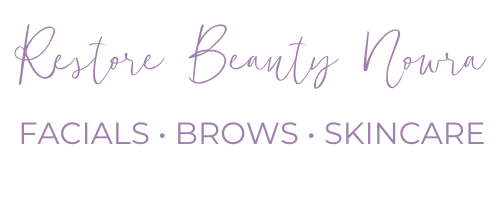Is your skin balanced?
Why skin pH balance is important and how to get it
One of the keys to healthy, glowing skin is maintaining balanced pH levels.
The outer layer of your skin is the protective layer that comes into contact with the world you live in. When it's healthy, it does an amazing job of protecting your skin from environmental factors that can cause premature ageing and pigmentation.
When your skin’s pH is out of balance, bacteria and other allergens can find their way through your skin causing inflammation, allergies and breakouts.
Often the first sign of pH imbalance is when your skin feels tight and dry. Other signs are:
* Excessive oiliness
* Dry patches
* Redness and rashes
* Eczema
* Psoriasis
* Acne
* Premature signs of ageing (fine lines, wrinkles, and sagging skin)
Everything that comes in contact with your skin (soaps, toners, lotions, wind, water, smoke) has a direct impact on the skin's pH. That’s why we need to be sure that we maintain that balance so it is able to do its job.
Some of the ways that we break down our pH are:
* Using harsh, chemical skin care products
* Soaps and detergents
* Tap water—the harder the water, the higher the pH
* Extended sun exposure
* A diet high in acidic foods
Restoring your skin’s pH level requires repairing its barrier function. This helps maintain the hydration levels of your skin and keeps it radiant and glowing. Here are some things you can do if you feel your skin pH is out of balance:
1. Eliminate soaps and harsh cleansers
This is the first thing you need to do if you love your skin. Do not use soap and avoid cleansers that contains harsh chemicals. Try our Camellia and Bergamot cleanser for a gentle but thorough cleanse.
2. Apple Cider Vinegar
Apple cider vinegar is excellent for regulating your skin’s pH levels. Make a simple Ph balancing toner by diluting half a cup of apple cider vinegar with four cups of water. Store in a spray bottle and use as often as you need, or try Superfood Toner to freshen and balance your skin.
3. Use natural oils and moisturisers
As we age, our skin’s ability to produce natural oils and sebum decreases and this can affect the pH balance of our skin. Using a natural moisturiser and an oil elixir at night will keep your skin hydrated and help in rebuilding the natural moisture barrier. Try Jasmine & Tamanu Moisturiser for daily protection and Nourish Night Elixir for overnight skin repair.
4. Use acids carefully
Ingredients such as retinoic acid, alpha and beta hydroxy acids, and amino fruit acid are good for your skin and can help in maintaining its acid balance. However, when not used properly, these acids can damage the natural defence of your skin. I recommend that you leave these for a professional facial.
5. Use sun protection
Using sunscreen regularly is crucial for maintaining your skin’s pH level and shielding it from further damage. Use a sunscreen with a broad spectrum SPF and do not forget to apply it before going out into the sun.
6. Use antioxidants on your skin
Topical antioxidants strengthen your skin cells and protect your skin from environmental damage and stress. Try Vitamin C as it is known for balancing the pH of your skin and it’s antioxidant properties. This is why I’ve chosen it as a key ingredient in Nourish Day Serum.
7. Try an antioxidant-rich eating plan
Your daily diet should contain lots of antioxidant-rich foods, such as leafy vegetables (spinach is good for your health and your skin) and fruits (opt for low sugar fruits such as banana, berries, and watermelon). Avoid having processed food as it increases your body’s acidity, which can have an impact on your skin’s pH level. Make way for salads and cut down your sugar intake.
And, most importantly, don’t forget to take care of your skin. You need to show it some love and care if you want to keep it looking it’s best.

